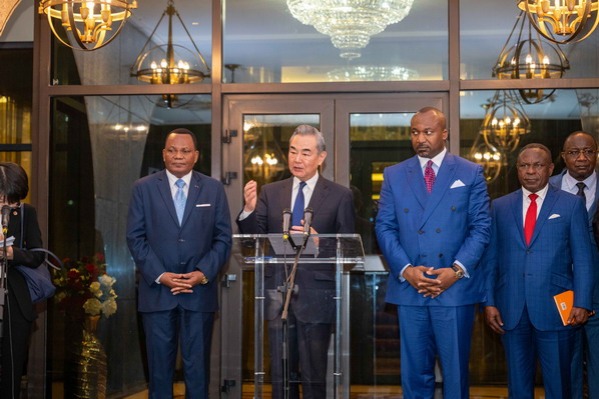Light on the diplomatic horizon


Coexistence, respect
"Managing the competition between the two countries and striving toward a relationship that recognizes the need for coexistence and respect should be a key focus for both countries."
Given that Republicans and Democrats in the US are relatively united in their hard-line approach toward China, it is going to be a long, difficult struggle to get on a diplomatic path toward moderating tensions, he said.
On Capitol Hill the only consensus politicians seem to have is countering what they deem a "strategic competitor". They had already produced more than 260 bills with negative content on China in the six months since the 117th Congress began its session on Jan 3.
Such congressional attitudes mean the hardening US approach with China will continue, said Robert Sutter, professor of practice of international affairs at the Elliott School of George Washington University.
On the other hand, there are "countercurrents", represented by US businesses, universities and other organizations closely engaged with China, and prominent China specialists, who have argued for "greater moderation" in dealing with China, he said.
Those people have cautioned that the threat of Chinese challenges seen by US policymakers is exaggerated, and that US policy should deal with the challenges with nuanced approaches featuring dialogue and reassurance, Sutter said.
Continuing problems
"It's against this background that the Biden government faces continuing problems in coming up with an effective strategy toward China that takes into account business and other pro-China interests in the United States and those interests among US allies and partners as well."
David M. Lampton, a senior fellow at the Foreign Policy Institute of Johns Hopkins School of Advanced International Studies, said that to manage US-China relations safely, what is needed is not only deterrence but incentives to hold things together.
"Not moving ahead on reducing tariffs at the same time that everybody is fearful of inflation and slowing growth is just quite simply nuts," Lampton said.
"The United States and China not cooperating in management of the global pandemic is egregious, especially given our record of fruitful cooperation in past pandemics."
Looking to the coming year, the Biden administration could face mounting pressure to address domestic issues such as surging inflation, even as midterm elections approach, possibly reducing the attention devoted to China issues, but at the same time Biden would avoid appearing weak to critics, experts said.
At the US-China Policy Foundation gala on Dec 21, Rick Waters, deputy assistant secretary of state for East Asian and Pacific Affairs, continued to say that the US-China relationship is defined by "intense competition", and that the US will continue to invest at home to "outcompete" China, and that intense competition requires equally intense diplomacy.
A day before in Beijing, Chinese State Councilor and Foreign Minister Wang Yi summed up China's position: Dialogue can be held, but it should be equal; collaboration is welcome, but it should be mutually beneficial; competition is fine, but it should be healthy.
"We are not afraid of confrontation, and will fight to the end," Wang said, while noting that both countries stand to gain from collaboration and lose from confrontation.
That is the most important lesson learned from the exchanges between China and the US for more than 50 years, and history will "surely" continue to prove that truth, Wang said.
"It is hoped that the US side will earnestly implement the consensus reached by the leaders of the two countries, fulfill its commitments to win trust, and work with China to explore the way of peaceful coexistence between the two major countries."

































